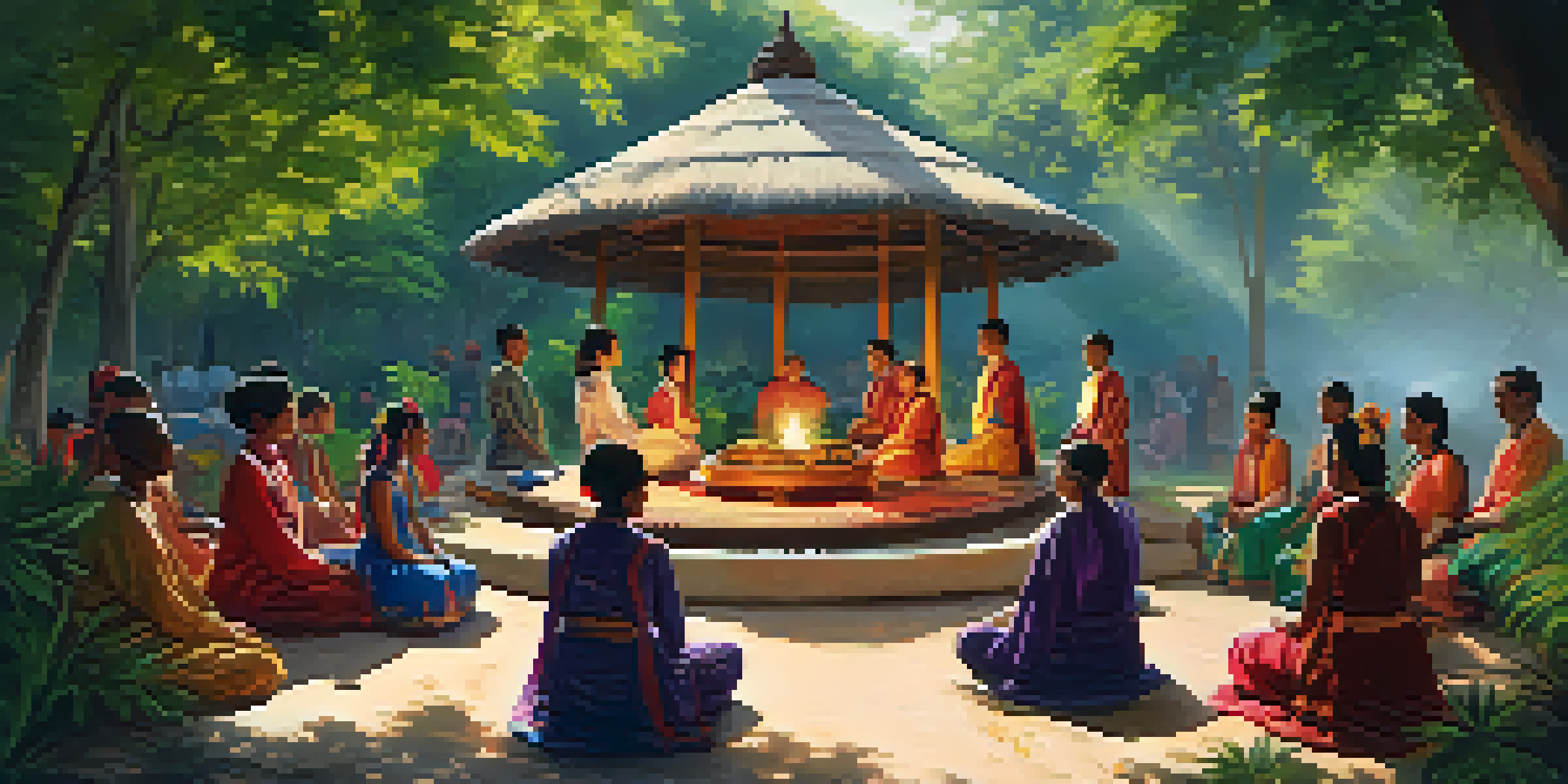Cultural Spiritual Practices and Their Influence on Self-Identity

Understanding Cultural Spiritual Practices
Cultural spiritual practices encompass the rituals, traditions, and beliefs that communities engage in to connect with their spirituality. These practices often reflect the values, history, and collective experiences of a group, serving as a foundation for their identity. For instance, Indigenous ceremonies that honor nature not only express spirituality but also reinforce a community's connection to their land and ancestry.
The Role of Spirituality in Shaping Identity
Spirituality is a key component of self-identity, influencing how individuals perceive themselves and their place in the world. It provides a framework for understanding life's challenges and victories, helping people to navigate their personal journeys. For example, many individuals find solace and strength in their spiritual beliefs during difficult times, which can significantly shape their self-esteem and sense of belonging.
Cultural Practices Shape Identity
Cultural spiritual practices reflect community values and history, forming a vital part of individual and collective identity.
Cultural Spiritual Practices and Community Bonds
Cultural spiritual practices often foster strong community bonds, creating a sense of belonging among individuals. Events like communal feasts, prayer gatherings, or festivals allow people to come together, share experiences, and support one another. This sense of togetherness not only reinforces individual identities but also strengthens the cultural fabric of the community.
Personal Narratives: A Path to Self-Discovery
Personal narratives woven through cultural spiritual practices can lead to profound self-discovery. When individuals engage in storytelling about their spiritual experiences, they often uncover deeper insights about their values and beliefs. For instance, sharing stories during a cultural ceremony can illuminate personal connections to heritage, guiding individuals toward a stronger sense of self.
Community Bonds Through Rituals
Engaging in cultural spiritual activities fosters strong connections among individuals, reinforcing a sense of belonging.
The Interplay Between Tradition and Modernity
In today's fast-paced world, the interaction between tradition and modernity can impact cultural spiritual practices. While some may cling to traditional rituals, others might adapt these practices to fit contemporary life. This evolution can create a dynamic space where individuals balance their cultural heritage with modern influences, refining their self-identity in the process.
Challenges in Maintaining Cultural Spiritual Practices
Despite their importance, many cultural spiritual practices face challenges in modern society. Globalization and cultural homogenization can dilute unique traditions, leading to a loss of identity for some communities. Additionally, individuals may struggle to navigate their cultural practices while also embracing new beliefs, creating a complex landscape for self-identity.
Healing Through Cultural Engagement
Participating in cultural spiritual practices can provide profound healing and self-discovery, helping individuals embrace their true selves.
The Healing Power of Cultural Spiritual Practices
Cultural spiritual practices can offer profound healing for individuals grappling with identity issues. Through rituals, meditation, or prayer, people often find a safe space to explore their emotions and experiences. For example, participating in a healing circle can foster a sense of acceptance and understanding, empowering individuals to embrace their true selves.
Embracing Cultural Spiritual Practices for Self-Identity
Ultimately, embracing cultural spiritual practices can significantly enrich one’s self-identity. By engaging in these practices, individuals can connect with their roots, nurture a sense of community, and cultivate personal growth. It’s a journey of self-exploration that highlights the beauty of diversity and the importance of honoring one's heritage.